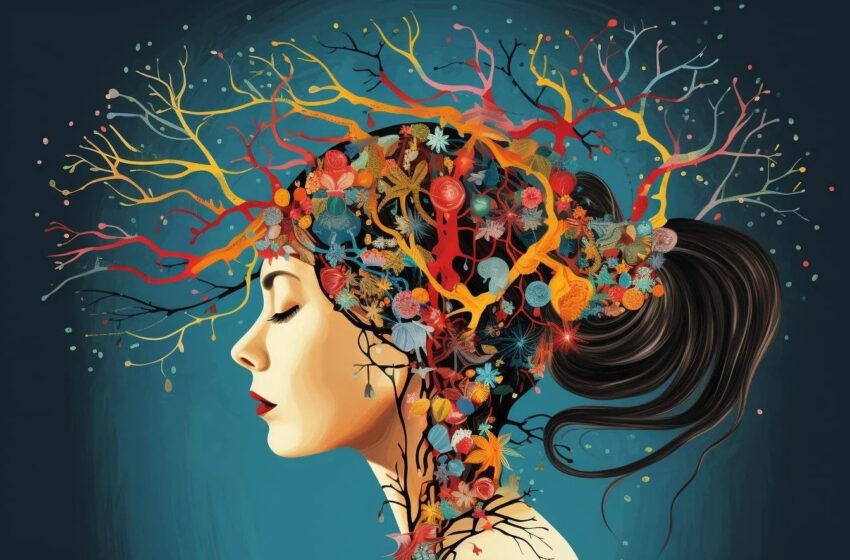What is Mental Health – Types, Disorders and Diagnosis

Mental Health and it’s causes
There is no doubt that your Mental health is a vital part of your overall well-being. It affects how you think, feel, and act. Just like physical health, our mental health plays a crucial role in our daily lives. Today, when the lifestyle has become to hectic, it is important to know about how can you keep your mental health fit. Also, here we will talk about the major difference between mental health issues, mental illness, disorders, and mental problems, and how we can take care of our mental well-being. So, be here till the end to know the complete information.
Well, so as you all know, it refers to how we think, feel, and cope with life’s challenges. Just like we take care of our physical health by eating well and exercising, it’s equally important to take care of that. It affects our emotions, thoughts, and behaviors. When our mental health is in good shape, we can handle stress better, make good decisions, and maintain healthy relationships with others. However, when our mental health is not well, it can lead to issues like anxiety, depression, or other conditions that make it harder to live a fulfilling life. It’s essential to reach out for help and support when facing mental health challenges, as there are many resources available to help individuals improve their mental well-being.
What Is Mental Health?
However, as you read above that refers to our emotional, psychological, and social well-being. It involves our ability to handle stress, build and maintain healthy relationships, make decisions, and manage life’s challenges. Good mental health isn’t just about the absence of mental illness but having the strength to face life’s ups and downs. However, taking care of your mental health doesn’t mean you should be happy all the time. It’s about finding a balance and understanding that it’s okay to have ups and downs. It’s normal to feel sad, stressed, or anxious from time to time. But when these feelings persist and start affecting your daily life, it’s important to seek help.
People are often seen searching for how to support mental health. So, shooting your excitement down, we would like to tell you that there are various ways to support your health, including talking to a trusted friend, family member. Additionally, activities like exercise, mindfulness, and relaxation techniques can also contribute to a healthier mind. Remember, taking steps to care for your mental peace is a sign of strength, not weakness, and can lead to a happier and more fulfilling life.
Mental Health Issues and Mental Illness
When it comes to talking about issues, such issues are like little bumps in the road of life. They are common and temporary challenges that everyone faces from time to time. These issues can include feeling stressed about a test, going through a breakup, or feeling anxious before a big event. It usually resolve on their own, with the support of friends and family, or by using simple coping strategies.
Moreover, if we talk about mental illness, then it is a more serious and persistent condition that affects a person’s thinking, mood, or behavior. It can interfere with daily life, work, and relationships. Conditions like depression, anxiety disorders, bipolar disorder, and schizophrenia are examples of mental illnesses. Mental illness often requires professional help, such as therapy, medication, or a combination of both, to manage and improve the condition.
Mental Health Disorders!
Well, talking about the disorders are specific conditions that have been recognized and categorized by medical professionals. They are often diagnosed based on specific symptoms and criteria. Some common mental health disorders include:
- Depression: A deep feeling of sadness and hopelessness that lasts for a long time.
- Anxiety Disorders: Conditions like generalized anxiety disorder, panic disorder, and social anxiety disorder.
- Bipolar Disorder: Extreme mood swings between high energy and deep depression.
- Schizophrenia: A serious disorder that can affect a person’s thinking, feelings, and behavior.
However, these disorders can be treated with the help of mental health professionals like psychiatrists, psychologists, and therapists.
What Are Mental Health Problems?
Heading towards more, Mental problems are a broad term that can include both mental health issues and mental illnesses. They encompass any challenges related to mental well-being that may affect a person’s day-to-day life. Mental problems can be temporary or more long-lasting, and they can range from mild to severe.
How To Take Care Of Your Mental Health?
However, there are several ways to take care of your mind or mental health, but visiting a psychologist every time is not a good idea. Therefore, it is important to take care of your health on your own. Here are key points that you should know.
- Self-Care: Practice self-care by getting enough sleep, eating well, staying physically active, and finding ways to relax and reduce stress.
- Talk About It: Share your feelings and thoughts with someone you trust. Sometimes, talking about your concerns can be very helpful.
- Seek Professional Help: If you’re struggling with a mental illness or a severe mental problem, don’t hesitate to reach out to a mental professional. They can provide guidance and treatment.
- Connect with Others: Building and maintaining supportive relationships can be incredibly beneficial.
- Be Mindful: Practice mindfulness and relaxation techniques to stay grounded and reduce anxiety.
Finally, we can say that it is an important part of our lives. Understanding the differences between mental health issues, mental illness, and mental problems can help you navigate the challenges you may face. Remember, it’s okay to seek help when needed, and taking care of your mental well-being is a crucial part of living a healthy and fulfilling life.